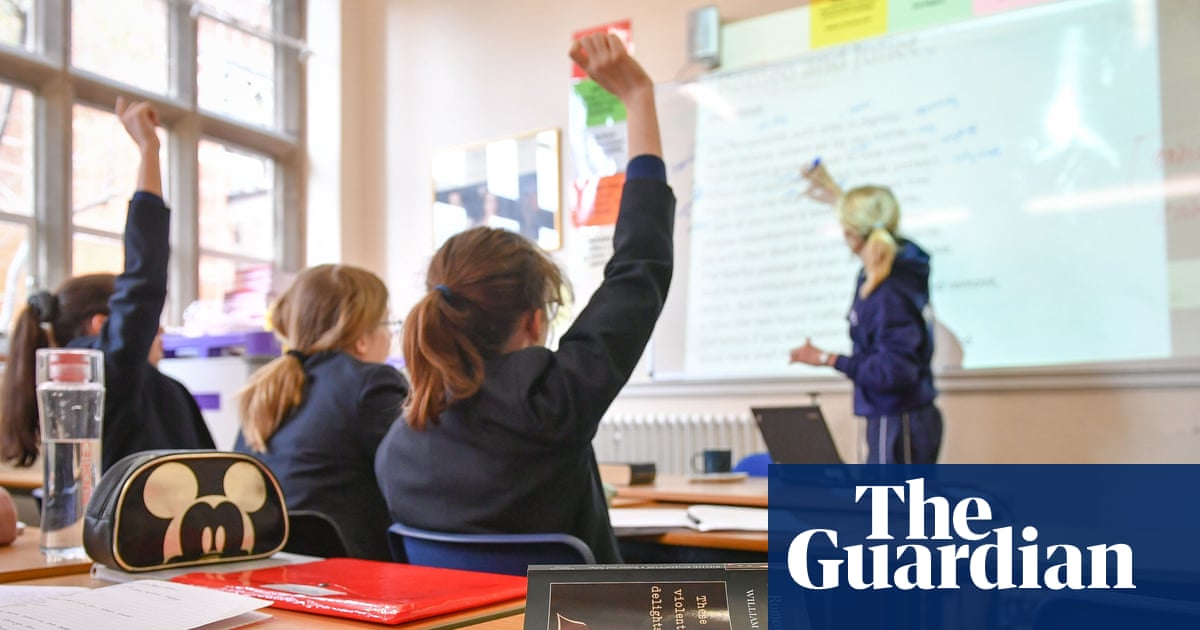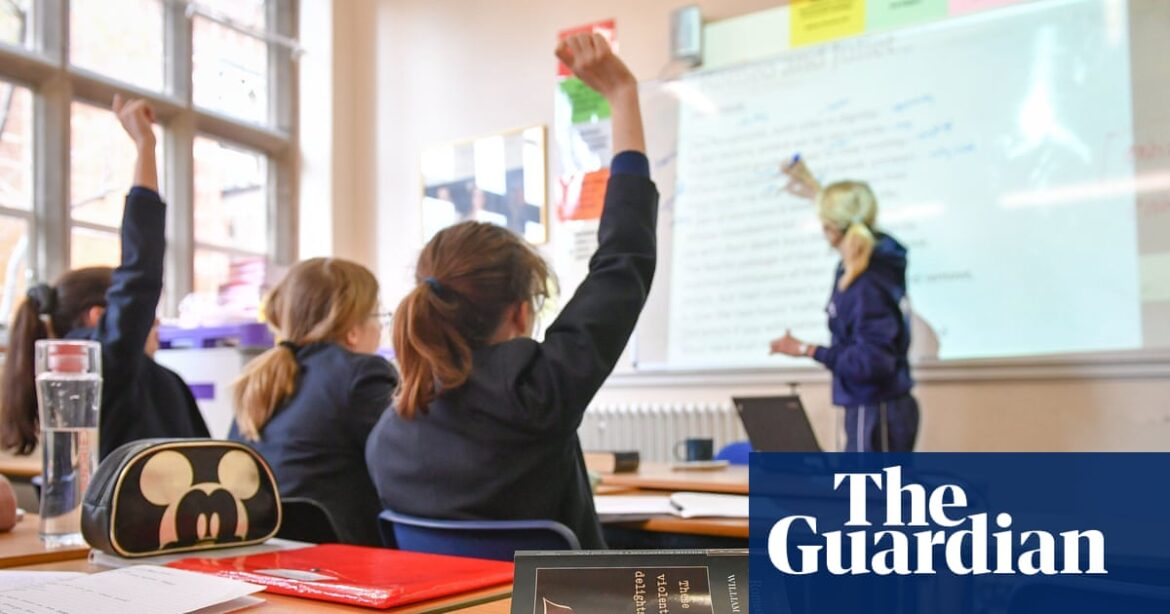
State schools in England should set up debating clubs and train teachers in the art of encouraging classroom discussions in order to improve children’s oracy and help them develop speaking skills for life, a senior leader at Eton college has said.
While private schools have greater resources to work on enrichment and life skills outside the demands of the GCSE and A-level curriculum, teachers in state schools, who often work with disadvantaged children with additional needs, say they do not have sufficient time or training to focus on oracy.
The government has said it wants to embed speaking skills in all schools as an educational priority, and a new focus on oracy is expected to form part of the upcoming curriculum and assessment review.
Life Lessons 2024, a report by the Sutton Trust shared exclusively with the Guardian, found that 96% of teachers think life skills are as important as or more important than formal academic qualifications in determining how well young people do in adulthood, and 51% think they are more important.
Half of state school teachers say they have neither the time nor training, and state school teachers are twice as likely as their counterparts at private school to say their school does not provide good opportunities, for pupils to develop these non-academic skills (one in five v one in 10).
Eton college, where annual fees will increase from £52,749 to about £63,000 when the government adds VAT in January, encourages the use of oracy at all times and its record may speak for itself. Over the centuries the Berkshire school has educated 20 prime ministers, for whom the art of public speaking has been paramount.
Jonathan Noakes, Eton’s director of teaching and learning, quoted in the Sutton Trust report, said there were things that Eton did that could not be replicated in every state school. Eton has far smaller class sizes and most boys are already confident speakers when they arrive.
“We teach through discussion. It is not OK for a boy at Eton not to speak in lessons – and that makes a big difference,” Noakes said. “We also specifically train teachers to run lessons as discussions. In a teacher’s first year at the school, we run coaching days for them throughout the year, and one of those looks at how best to generate discussions in class.”
There are specific points in a child’s time at Eton where the focus is specifically on oracy. For example, all year 9 pupils (aged 13-14) are obliged to study the rudiments of rhetoric, give a speech and take part in a debate as part of their English studies.
“We want to make sure right at the beginning that they have these skills. But we also teach how to do a presentation more than once, and in more than one subject. Overall, these skills are practised again and again throughout the school.” Eton also has a debating society and a model United Nations that discusses UN resolutions, but neither are compulsory.
While many state schools already work effectively on developing children’s skills in using spoken language, Noakes acknowledged the additional challenges facing state school teachers
“I’ve seen in state schools, where classes are 30 students or more, that it can be much more challenging to get everyone involved in discussions.” At Eton, sixth-form classes have eight to 12 pupils, and in year 9 there are up to 22 pupils.
after newsletter promotion
“State schools I’ve worked with, for example the London Academy of Excellence (which Eton is a partner school of), serve academically a very similar ability group of
students to Eton, and they have chosen to have a specific oracy programme,” he said.
“I think for most state schools, because their context is different, it makes sense to consider this approach, alongside specific training for teachers to encourage discussions in lessons. Debate clubs in state schools could I think also be an excellent way to help students to learn these skills.”
The Sutton Trust survey, conducted by the Teacher Tapp online platform, attracted responses from almost 8,000 teachers. It found that private schools are much more likely to have a debating club – 53% v 18% in state schools. More than a third (37%) of senior leaders say oracy is embedded in some lessons, such as English or history, and less than a third (31%) say this is the case for all lessons.
Stoke Park school, a comprehensive in Coventry with an above-average proportion of students eligible for free school meals, is one state school already making great strides in oracy provision. Alice Byrne, a senior assistant head teacher, said: “For us, oracy is embedded throughout the curriculum, from when students first start in year 7, right the way up into sixth form. In lessons, we specifically set aside time for students to talk.”
Sir Peter Lampl, the founder of the Sutton Trust, said: “The ability to express ideas and thoughts confidently and articulately is essential for young people to advocate for themselves in university and job applications, and to get on in the world of work.”
Source: theguardian.com



